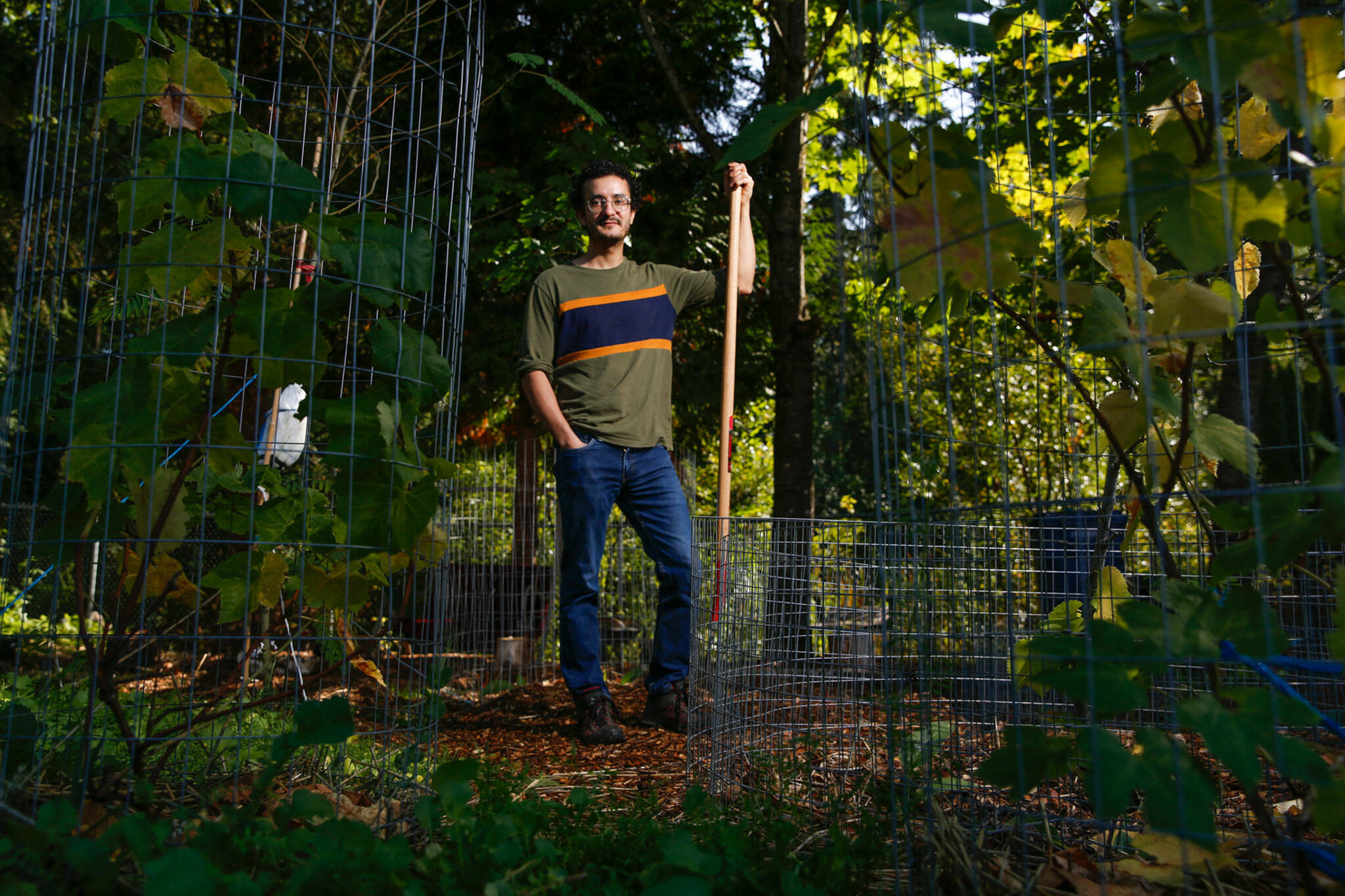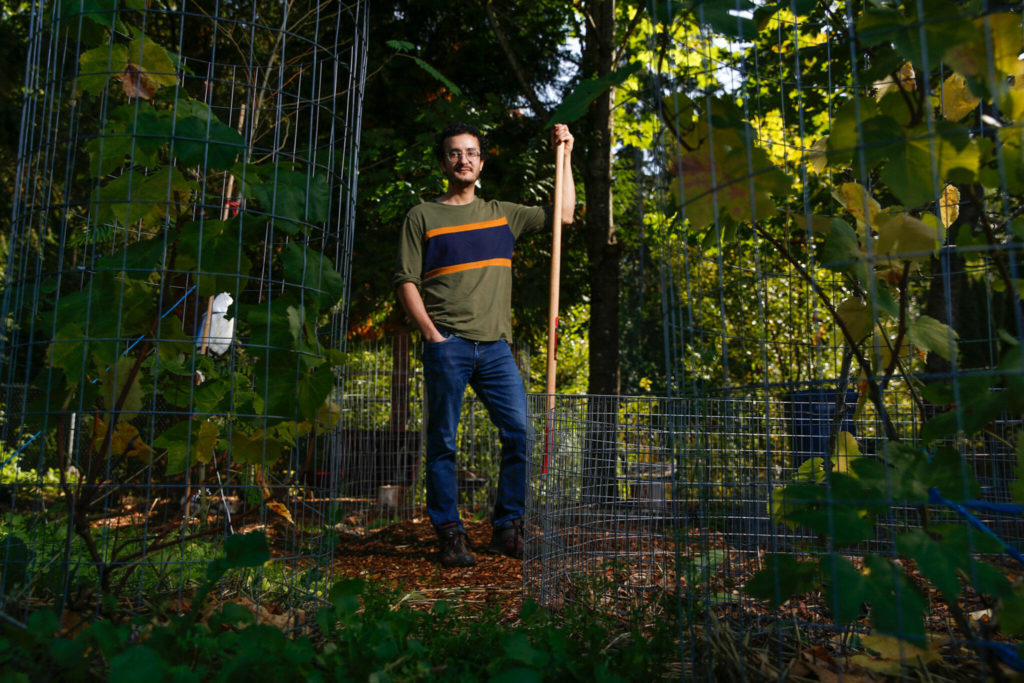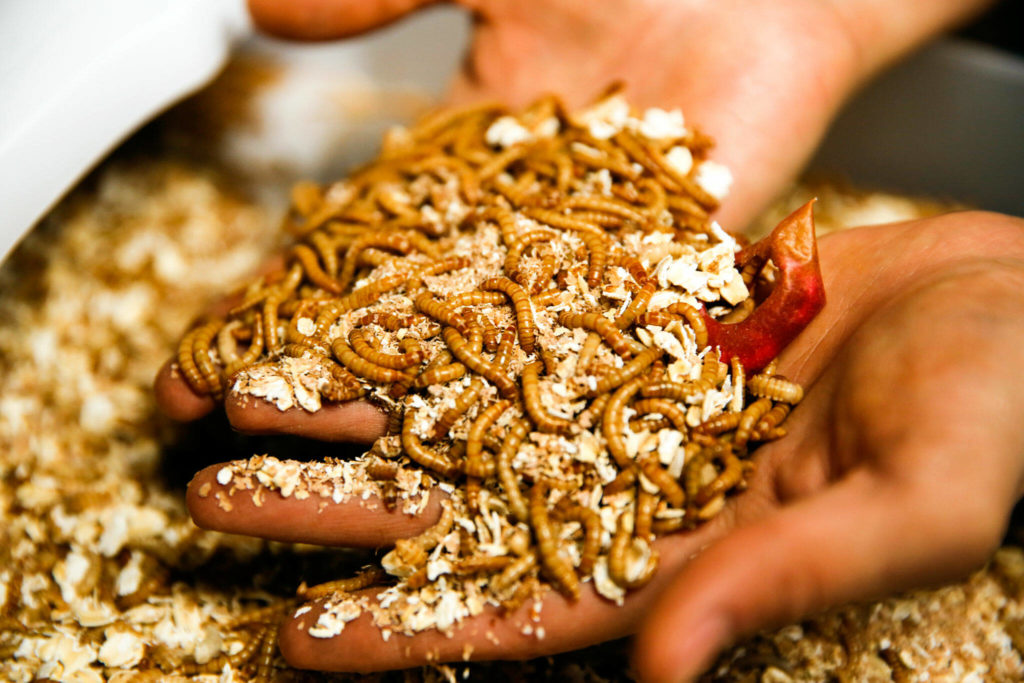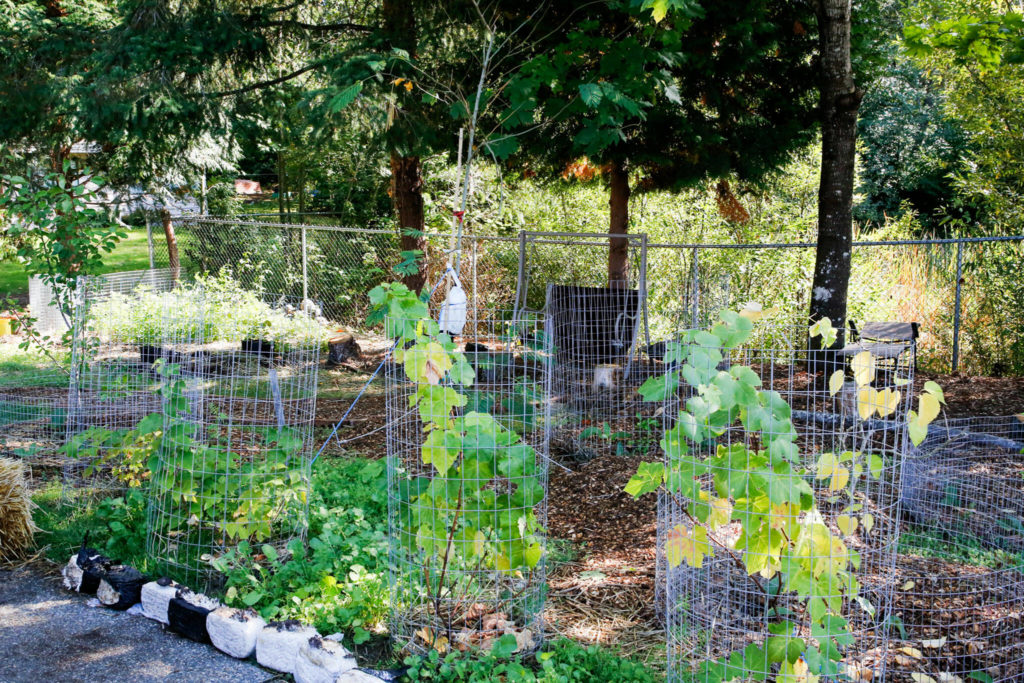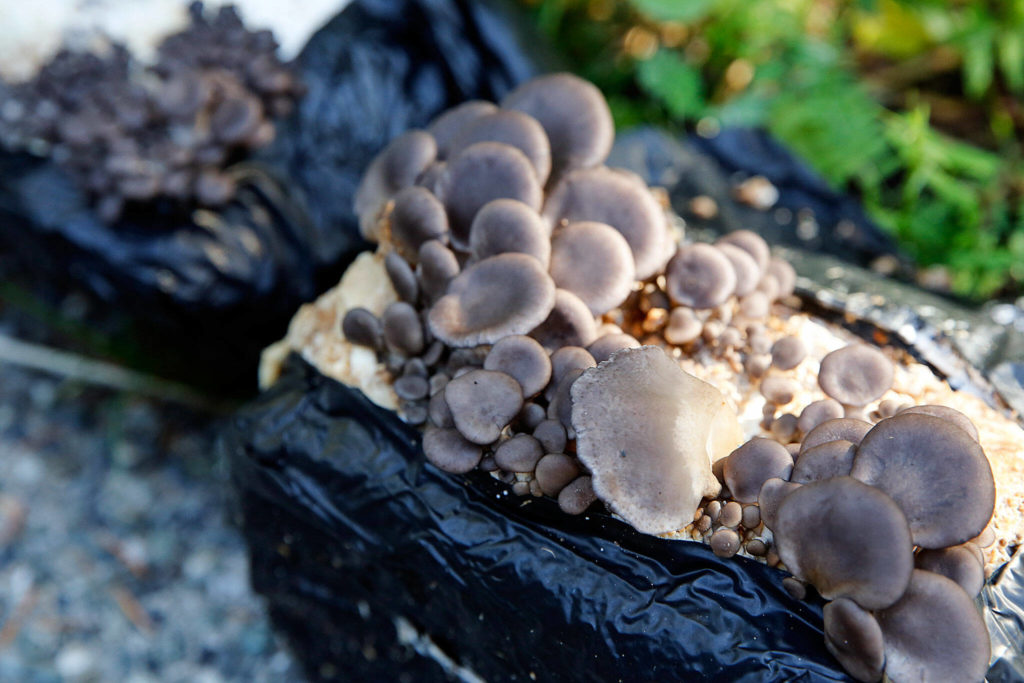This is the third of three Daily Herald stories looking at how climate change threatens our urban trees and highlights their value in helping us cope with it.
BOTHELL — Saman Shareghi checks a lot of Northwest millennial boxes. Age 31. Computer science degree. “Super worried” about climate change and feeling let down by the lack of political will to deal with it.
What sets Shareghi apart is his response to that discouragement. He’s creating a climate-friendly food forest in his family’s yard. It is part of his small-scale but intense leap into permaculture — a way of growing food that mimics the diversity and resiliency of natural ecosystems.
He likened his effort to the victory gardens of World War II, when millions of Americans planted and harvested their own crops so commercially produced foods could be used for the troops.
“I’m taking a bottom-up approach.” Shareghi said. “During World War II, victory garden food production equaled commercial production. Now, in a climate emergency, it’s like wartime.”
The Bothell resident sought advice this year from Carrie Brausieck, a planner with the Snohomish Conservation District. She eagerly promotes urban food forests to combat climate change, by planting and preserving carbon-storing, shade-providing trees. The forests also create more places for growing food close to where people live, reducing transportation emissions.
“These are scaled-down forest structures,” said Brausieck, whose titles include agroforester. “You might plant a couple of apple trees, some berry shrubs and some mint or sage beneath. They can be in a corner of someone’s backyard or on a larger scale in a community park.”
Many edible plants do just fine in partial shade, Brausieck said. That’s especially true in periods of extreme heat and drought like the Pacific Northwest is starting to experience.
Brausieck used her own yard as an example. When temperatures climbed above 100 in June, “my lawn was fried.” Her raised garden beds needed a lot more water than usual. But her food forest, with its layers of leafy canopy, did OK. “When everything else is bone dry, I can scrape away the soil there and still find moisture. That’s resiliency … and it’s an amazing habitat for songbirds and insects.”
Brausieck has applied for a U.S. Department of Agriculture grant that would help community forest gardens get up and running, and inform the public about this kind of food production.
Meanwhile, forest gardens are sprouting around the county.
At Pilchuck Julia Landing in Snohomish, the conservation district worked with the city to plant trees and shrubs along the Snohomish River, including nuts, fruits and berries.
The Snohomish Public Utility District is developing a food forest near its Woods Creek Hydro Project. In August, its first harvest provided fruit to food banks.
The Seed to Fork organization has plans for a community food forest on two acres of church property near Maltby, where crews planted 50 fruit and nut trees this summer to replace lawn.
Even the Interfaith Family Shelter in downtown Everett might add mini courtyard food forests. “They will sequester carbon, provide shade and beauty and a respite for people in a very urban environment,” Brausieck said.
While large trees are best at capturing carbon dioxide, the benefits of many smaller trees, shrubs and plants can add up. Growing edibles among trees rather than in rows is common in much of the world, Brausieck said. “This is how South Americans garden.”
Shareghi’s girlfriend, Sahar Moghaddam, introduced him to permaculture. When he lived for a while in Washington, D.C., he volunteered at a food forest in Maryland.
“They weren’t using any chemicals, any biocides,” he said, “they didn’t even have a garden hose on a 15-acre garden.”
This year he joined his father and mother, Abbas Shareghi and Pirayeh Keshavarz, at the family home in Bothell. It is a 1960s blue-painted log cabin around which a subdivision has grown. As planned, Saman Shareghi began turning the property into a self-contained agricultural oasis. When he sought out information on soil tests, he learned about the Snohomish Conservation District and was referred to Brausieck. She offered to come to his home for a consultation.
“Carrie was very generous with her time,” Shareghi said. “We were having rat problems with the chickens, and she suggested what to plant to deter them: mint, lavender, sage, rosemary — the aromatics.” She also suggested pollinator-friendly plants, making for happy bees.
The Shareghis have a relatively small yard, Brausieck said, perhaps an eighth of an acre. “He’s not going to have huge, looming trees.”
Saman Shareghi did plant an English walnut tree — he says with a smile that he prefers its alternate name, Persian walnut. Brausieck suggested he plant sun loving-plants around it first and, later, when the tree casts more shade, currants or elderberries.
The walnut is behind the house, where a dozen chickens cluck around an enclosure that Abbas Shareghi keeps meticulously clean. He tracks egg production on a spreadsheet. Other chicken output becomes fertilizer. In the adjacent garage is a heated enclosure with another source of natural fertilizer: mealworms and red wrigglers, multiplying in bins.
The side yard has a driveway on one side and tall maple trees on the other. It used to be a lawn that was planted on top of construction debris. Now it is a fledgling, multi-layered garden. Saman Shareghi’s top priority is to improve the quality of its soil. Everything in the garden is chosen not only for food value but for what it can contribute to the soil and surrounding plants. It yields not just fruit, but sentimental value. Cherry and bitter orange trees remind the immigrant family of their home in Iran.
The sloped front yard is where Abbas Shareghi grows roses and medicinal herbs. His son plans to transform it into a terraced, raised bed that is perfect for displaying flowers and raising sun-loving vegetables.
Neighbors are taking notice of the family’s efforts.
“They stop by with questions,” Saman Shareghi said. “It’s interesting to see the quizzical looks on their faces.”
To share advice and document his progress, he has started an Instagram account called @morningbirdnursery. The garden may even grow into a small business, selling soil amendments and plants. Having just started the garden in earnest in 2021, Saman Shareghi figures it will take two or three years to reach its prime. But the first real harvest? That’s happening in 2022.
Julie Titone is an Everett writer who can be reached at julietitone@icloud.com. Her stories are supported by the Herald’s Environmental and Climate Reporting Fund. To contribute, go to HeraldNet.com/climatedonate.
About this series
This three-part Daily Herald series looks at how climate change threatens our urban trees and highlights their value in helping us cope with it.
Part 1: Two of the Pacific Northwest’s most iconic trees, the Western red cedar and hemlock, are most stressed by new extremes in heat and rainfall. As regional conditions rapidly evolve, experts are changing their advice about what to plant.
Part 2: A local campaign to protect urban trees finds permitting regulations for developers sorely lacking. Its efforts may result in a more tree- and climate-friendly Snohomish County Comprehensive Plan.
This story: What’s a forest garden? A great way to grow edibles during a time of climate change, says a conservation planner. A Bothell man incorporates the idea into his all-out effort to turn a yard into a climate-friendly food system.
Environmental Reporting Fund
If you’d like to see more stories like this, donate to The Daily Herald’s Environmental and Climate Change Reporting Fund in partnership with Journalism Funding Partners. Go to heraldnet.com/climatedonate.
> Give us your news tips. > Send us a letter to the editor. > More Herald contact information.Talk to us
Gallery
